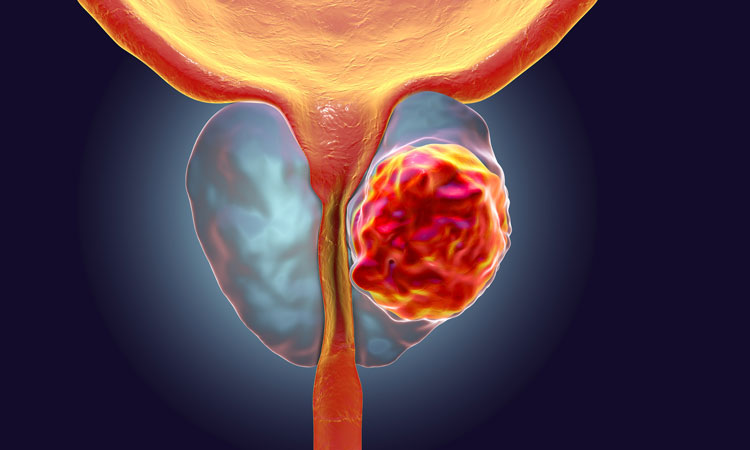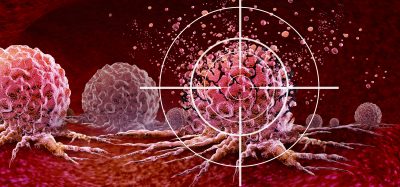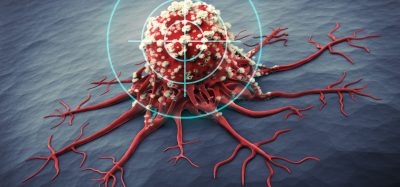Blood test developed that reliably detects NEPC
Posted: 11 January 2024 | Drug Target Review | No comments yet
A new blood panel test reports the tumour fraction and the tumour type of prostate cancer with a high level of accuracy.


Researchers at Dana-Farber Cancer Institute and the University of Trento have developed a blood test that reliably detects neuroendocrine prostate cancer (NEPC) and differentiate it from castration-resistant prostate adenocarcinoma (CRPC-adeno).
Cancer cells can switch their identity, and detecting such a switch is especially difficult when metastatic CRPC advances from adenocarcinoma to NEPC, a very difficult cancer to treat.
Currently, NEPC is diagnosed using a biopsy of tumour tissue from a metastatic tumour site. However, it is not always clear to clinicians when to do a biopsy, and biopsies may be unreliable as metastatic tumours are often heterogeneous.
Co-lead author of the study Dr Himisha Beltran is Associate Professor of Medicine at the Lank Center for Genitourinary Oncology and the Division of Molecular and Cellular Oncology at the Dana-Farber Cancer Institute. She said: “As prostate cancer treatments get more effective, we expect the emergence of different types of treatment resistance like neuroendocrine prostate cancer that help them evade treatment…We hope this blood test can be used by clinicians to determine if a patient is developing neuroendocrine prostate cancer.”
Androgens
Around 10-15 percent of patients with metastatic prostate cancer develop NEPC. The transition involves a shift from cancer cells that are dependent on hormones called androgens to cancer cells that no longer even recognise androgens.
Dr Beltran explained: “They can stop expressing the androgen receptor…They shut down their hormone-driven identity and they turn on a new identity as a way to develop resistance to treatment.”
In previous research, to identify the genetic and epigenetic changes related to this transition, the team studied tissue samples from biopsies. They discovered that, across the whole genome, specific epigenetic changes, in the form of DNA methylation changes that switch genes on or off, distinguish CRPC-adeno from NEPC.
The body is constantly shedding fragments of dead cells into the bloodstream, meaning these epigenetic changes can be detected in the blood. Those cells come from all over the body, including from tumours. The fragments include cell free DNA (cfDNA), along with whatever epigenetic tags and structures were attached to them when the cell died.
With a computational team at the University of Trento led by Dr Francesca Demichelis, who is co-lead author of the study, Dr Beltran created a blood panel test named NEMO (NEuroendocrine MOnitoring panel).
Dr Demichelis explained: “The test selectively probes cfDNA in blood plasma for relevant DNA fragments and measures their methylation…Because the number of methylated regions needed to distinguish between normal, CRPC-adeno, and NEPC cells is small, the panel of genes sequenced by the test is minimal and efficient.”
NEMO reports two measures. One is the tumour fraction, which is a measure of disease burden based on the ratio of tumour DNA to normal DNA in the blood. The second is the tumour type, either CRPC-adeno or NEPC. The tumour type is reported as a score on a continuum because a patient’s cancer might be a mix of the two.
“It not only picks up the neuroendocrine phenotype but also can pick up subtypes in the middle, as tumours transition from one subtype to the other,” stated Dr Beltran.
Preclinical models
NEMO was tested in several preclinical models of prostate cancer and in blood samples from multiple patient cohorts with known prostate cancer subtypes by Dr Beltran’s team. The NEMO tumour type score identified subtypes with a high level of accuracy.
In the future, Dr Beltran and her colleagues aim to transition NEMO into a clinical test that physicians can order and use in practice.
This study was published in Cancer Discovery.
Related topics
Cancer research, Computational techniques, Epigenetics, Hormones, Oncology
Related conditions
Cancer Research, castration-resistant prostate adenocarcinoma (CRPC-adeno), neuroendocrine prostate cancer (NEPC)
Related organisations
Dana-Farber Cancer Institute, University of Trento







